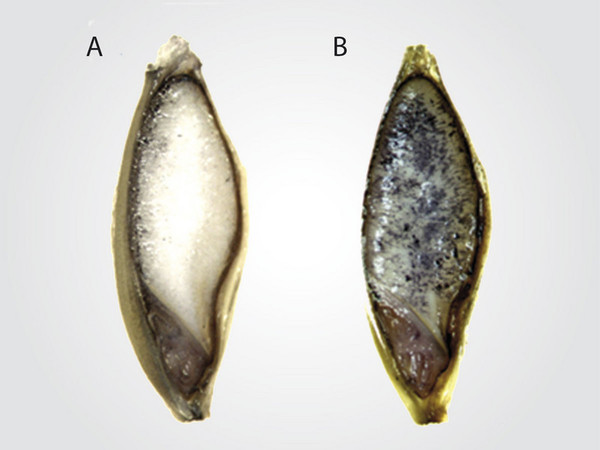Cathelicidin peptides are components of the human immune system and function as natural antibiotics – and such a peptide has now been created in barley by scientists from the Centre of the Region Haná for Biotechnological and Agricultural Research (CRH) in Olomouc. By means of molecular farming, they have developed a unique technology that may become a platform for large-scale production of this peptide. At present, its production costs reach many hundred Euros per milligram, so they could be significantly cut down by using genetically modified barley. The results of the research were published in Biotechnology Journal.
Cathelicidin is known as one of the antimicrobial peptides in the human skin, participating in its defence mechanisms against infectious microorganisms. It can disintegrate the cell membranes of bacteria and thus cause their death. “Due to its ability of fast and effective protection against the reproduction of pathogenic microorganisms, this peptide has a huge potential in the treatment of various infections, including those caused by strains that have developed resistance against antibiotics. One of the main obstacles for commercial utilisation of cathelicidin is, however, its high production cost,” said the first author of the article, Edita Holásková.
This was also one of the reasons why Olomouc researchers hit upon producing the peptide in plants – even though it is quite a complex process. Peptides have limited stability, and they even can be toxic for the host plant. Therefore it is necessary to optimise a number of parameters which have an impact on the amount and stability of the peptide as well as its potential phytotoxicity. “First of all we tested the influence of various protein or peptide molecules on the above-mentioned factors. Then we designed a number of variants of the gene for human cathelicidin and transported them first into tobacco leaves, where hybrid molecules were created. After selecting the most efficient production strategy, we transported the selected genes into barley. The transgenic plants we grew produced cathelicidin – exclusively in the grain,” explained the research team leader and CRH Director, Ivo Frébort. Scientists were able to isolate the peptide and subsequently test its antimicrobial activity. They have also found out that cathelicidin and its variants produced in such a way have no negative influence on the plant itself.
Although the production of antibacterial peptide in barley, especially in its grain, is a tremendous success, the new technology will have a long journey from laboratory experiments to application in practice. The goal of CRH scientists is to increase the amount of peptide produced in the plant and minimise the costs associated with its production and isolation. This research has been made on a long-term basis; among others, in collaboration with the company Úsovsko. Cathelicidin will have practical applications in medicine – for instance in treatment of chronic wounds and skin diseases.
The Centre of the Region Haná is a research institute based on cooperation among the Faculty of Science at Palacký University in Olomouc and the Olomouc branches of the Crop Research Institute and the Institute of Experimental Botany at the Czech Academy of Sciences.
